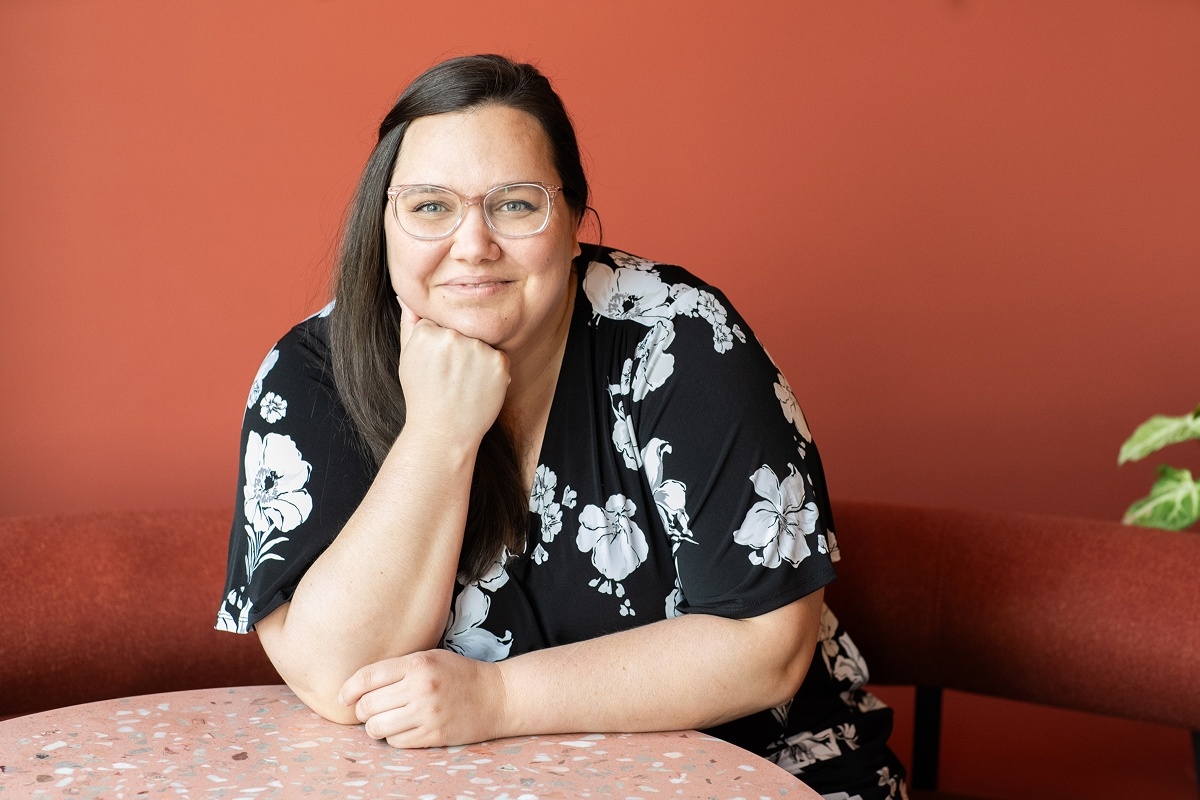About Me
Hi! I'm Lisa
I am a frontend developer specializing in content management systems. I've been working on websites for over ten years as a technical communicator, designer, and developer.
With an educational foundation in Technical Communication and Rhetoric and additional coursework in Visual Communication Design, I thrive in the space where design, development, and content strategy overlap.

A little bit of backstory…
I’ve always been fascinated by the way we communicate ideas with each other. When I was a kid it was with stories—books, movies, television. And then when I got older it was with newer mediums—social media, websites, digital advertising.
On my first day of at USU, we talked about User Experience, and I became obsessed with the whole field—finally I had words to describe my fascination with how individuals obsorb information. Several months later I began doing instructional design as an intern, then moved to web design, and then development.
How I work now
Because of this, my favorite development roles are ones where I get to collaborate with a cross-functional team. I love working with designers, strategists, copywriters, etc. to make sure we are delivering a product that is going to be functional for everyone. I want to make sure that we are not only meeting all the stakeholder requirements, but setting them up for the future. This means understanding and taking into account a client’s team, goals, and audience and tailoring the site to their needs.
What that looks like
Building for the future
I am an expert at pattern recognition, with an a strong eye for scalability and re-usability in development. My goal is for my projects to be as organized and maintainable as possible, with succinct, modular code. Nothing brings me more joy than going into sites or applications with superfluous code and KonMari-ing it to be clean and organized. I may or may not alphabetize my CSS properties.
Putting Users First
Every project is designed to meet my client’s needs—both the users viewing the finished pages and the marketers that build them. Finished projects are always user-friendly, accessible, and SEO optimized.
Articulating the “why”
I know the importance of being able to articulate the "why" behind creative decisions. Sometimes this means laying out the pros and cons of different options. Other times is means giving an expert opinion on what tasks to prioritize—and being able to back it up.
Being a Technical Communicator Makes Me a Better Web Developer
When talking about my background, I often (flippantly) refer to myself as a web developer with an English degree. It usually gets a few laughs, occasionally some head shakes, and the odd comment about the usefulness of college degrees.
The thing is, I give a lot of credit to my degree program. I spent a long time searching for the right one when it was time to transfer to a university, and 11+ years later I still feel like where I landed was the perfect fit for me.
“Translating” technical information into accessible terms
Having a background in technical writing means clearer communication in just about every area of my life, but the ability to code switch is especially helpful when talking to a team of writers, designers, marketers, engineers, etc. from around the world.
Working with a team
Long gone is the “I hate group projects” mentality. I love working with a team, and the skills I learned at USU help me be a better project lead.
Documentation & Training Materials
Along with documentation, tech comm gave me lots of experience with creating training materials in various mediums, which is something I use often when training clients on how to use their CMS and new theme. (Similarly, working as a Writing Center tutor in college also sparked a love of helping others learn, which comes out a lot when training clients and team members.)
A passion for accessibility and user experience
UX was one of the first things that really sparked my imagination from Day 1 at USU, and that carries over into everything I build. Plus, we were talking about accessibility before Google made it cool (i.e. profitable). (Not to mention that so much of technical SEO boils down having a well-structured document with appropriate heading levels.)
Approaching every project with the user in mind
I could spend an hour talking through my theory that marketing boils down to practical, applied rhetorical analysis (and have). But having a strong understanding of a project’s rhetorical situation gives me the ability to ask the right questions and make sure we’re meeting all of our user’s needs—both those viewing the finished pages and the marketers and content managers that build them. It also lets us make sure that not only are all the stakeholder requirements met, but that they have the room they need to grow.
In CMS development, that often looks like making sure the “inside” of a website is as useable as the outside—setting up CMS fields in a way that is logical and give the user an appropriate amount of flexibility, with clear labels, helpful tool tips, and inline instructions.
Understanding design principles
In addition to being able to “speak” designer, having a design background (and knowledge of various design software) means I know when to loop in the design team and when I can make informed decisions on my own. It also gives me a lot more flexibility to edit images and graphics and preparing them for the web, so I don’t need to flag down a designer every time something is missing or needs adjusted.